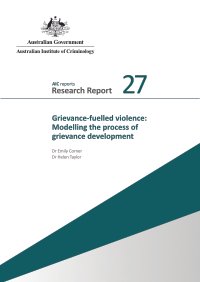By Simon Greipl, Julian Hohner, Heidi Schulze, Patrick Schwabl, Diana Rieger
Social media messages can elicit emotional reactions and mobilize users. Strategic utilization of emotionally charged messages, particularly those inducing fear, potentially nurtures a climate of threat and hostility online. Coined fear speech (FS), such communication deliberately portrays certain entities as imminently harmful and drives the perception of a threat, especially when the topic is already crisis-laden. Despite the notion that FS and the resulting climate of threat can serve as a justification for radical attitudes and behavior toward outgroups, research on the prevalence, nature, and context of FS is still scarce. The current paper aims to close this gap and provides a definition of FS, its theoretical foundations, and a starting point for (automatically) detecting FS on social media. The paper presents the results of a manual as well as an automated content analysis of three broadly categorized actor types within a larger radical German Telegram messaging sphere (2.9 million posts). With a rather conservative classification approach, we analyzed the prevalence and distribution of FS for more than five years in relation to six crisis-specific topics. A substantial proportion between 21% and 34% within the observed communication of radical/extremist actors was classified as FS. Additionally, the relative amount of FS was found to increase with the overall posting frequency. This underscores FS's potential as an indicator for radicalization dynamics and crisis escalation.
Journal of Quantitative Description: Digital Media. Vol. 4, 2024.




